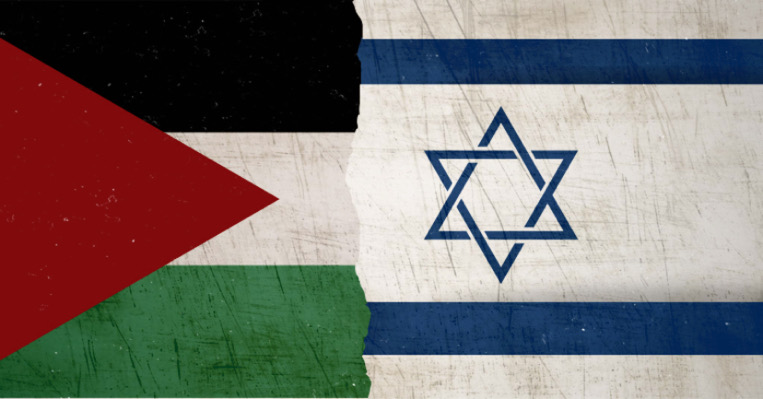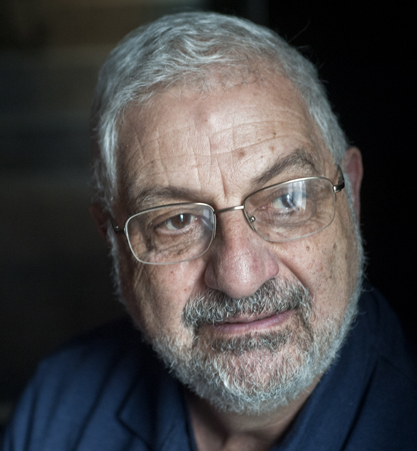The Present as a Threat: Palestinians, a Jewish State, and International Responsibility


The existence of Palestinians is an existential threat to the idea of a Jewish state in Palestine and present-day Israel – not a threat to a two-state solution nor a threat to a binational state of Jews and Arab Palestinians – but a reminder of the impossibility of a democratic Jewish state on a land where some seven million Arab Palestinians live between the Mediterranean Sea and the Jordan River. Both the present and future of Israel and Palestine cannot be surgically separated from their fraught, entangled, shared past. But that past is remembered and narrated completely differently by these two peoples. And there is no escape from history. Try to deny it, and it will take its revenge.
The tragic story of Palestinians is intimately interwoven into the modern history of the European Jewish diaspora. Pogroms and persecution of Jews in the most civilized (at least in their own view) continent on the globe culminated in the mass murder of millions of Jews in the Holocaust. The irony of that genocide was that the people targeted for destruction did not disappear but established a new state on a land inhabited by another people. Both sides claimed rights to that land: the Palestinian Arabs because they had lived there for centuries and had no other homeland; the Jews because they had lived there millennia before and had no other homeland. Hundreds of thousands of Arabs were dispossessed of their land and homes and became refugees in neighboring lands or far from home. One of the largest exiled Palestinian communities is not far from my home, here in Michigan.
Many modern nations have been founded on ethnic cleansing of indigenous peoples or attempts to eradicate whole peoples with genocidal violence. Armenians know this history well, and more and more Turks and Kurds are learning about the blank spots of the foundation of the Republic of Turkey. North Americans in the United States and Canada are being forced to face the horrific facts of what they did to native peoples: removing them from their homes, driving them into reservations, and forcing their children into schools designed to eradicate their culture, language, and memories.
An entire historical epoch (the nineteenth and twentieth centuries) was dedicated to the formation of homogeneous nation-states and the demise of cosmopolitan empires. World War I witnessed the transition from empires to nation-states in much of the world. The discriminations and enforced subordination of some people to others that marked the operation of empire were replaced by new ideas of the nation as egalitarian and homogeneous in which one people now possessed the state and all others were considered “minorities.” Interwar (1918-1939) Poland, for example, was a “Polish” nation-state but had features of a little empire in which Ukrainians, Belarussians, and Jews did not enjoy the same rights and privileges as their ethnically Polish neighbors. The Holocaust decimated the Jewish community in Poland during the Second World War, and Poles resisted violently the return of those Jews who survived the death camps. In 1945 Joseph Stalin annexed those lands inhabited by Ukrainians and Belarussians and pushed Poland hundreds of miles westward. The countries of Eastern Europe became even more ethnically homogeneous after the war, as governments drove out Germans, and Jews emigrated to Palestine.
The formation of Israel was not unique in nation-making; it just came about half a century too late. The Arab Palestinians refused to leave quietly. They resisted the occupation, even though year by year their cause seemed increasingly futile. Defense of Palestinian rights and claims was condemned as terrorism while Israeli Jews were granted the right to defend themselves and their new state. Palestinians refused to disappear even as Israeli governments supported the establishment of Jewish settlements in the so-called “occupied territories,” the area taken in the 1967 Six-Day War. Divided by lines drawn in the sand and rival leaderships, nevertheless, Palestinians in the West Bank, the Gaza Strip, and in Israel itself increasingly see themselves as a single people with shared interests.
Palestinians have been abandoned by what is euphemistically called “the international community.” The most powerful state in the world, the United States, defends the right of Israel to defend itself and is less concerned, despite its rhetoric, about the fate of the Palestinians. And a whole group of Arab emirates, monarchies, and dictatorships, pressured by the Trump administration, made their peace with the right-wing government of Israel.
Israeli actions – occupation, expansionism, targeted assassinations of opponents, the building of the only nuclear arsenal in the Middle East – have had far-reaching repercussions in international politics. Like the United States, Israel is a rogue state that flouts international law, carries out aerial bombing of civilian populations (which should be universally condemned as a war crime and a crime against humanity), and refuses to accept the jurisdiction of the International Court of Justice (ICJ). Besides the United States and Israel, other states that refuse to recognize the ICJ include Russia, China, India, Iraq, Libya, Yemen, and Qatar. Turkey initially rejected the competence of the court to adjudicate its dispute with Greece over the Aegean Sea continental shelf, and the dispute between the two countries over the issue continues. There were some indications, at least in 2019, that the Erdoğan government was open to the idea that the ICJ might be the venue to decide the country’s plans to look for oil and gas in Greek waters, including near the island of Crete, but nothing has come of that initiative.
There really is no other venue except international diplomacy and the art of give-and-take to resolve conflicts between states. Great powers, like the United States, China, and Russia – and even regional powers like Turkey and Israel – have enormous influence on whether disputes are resolved peacefully or, as in the case of Azerbaijan and Armenia last year, with bloodshed and the likely return to violence. The world is a dangerous place. Wisdom and statesmanship are required to resolve conflicts, which always arise, often unexpectedly. Ultimately real solutions to conflict must be based on mutual interest. In other words, on what is recognized universally as justice.
(July 22, 2021)



